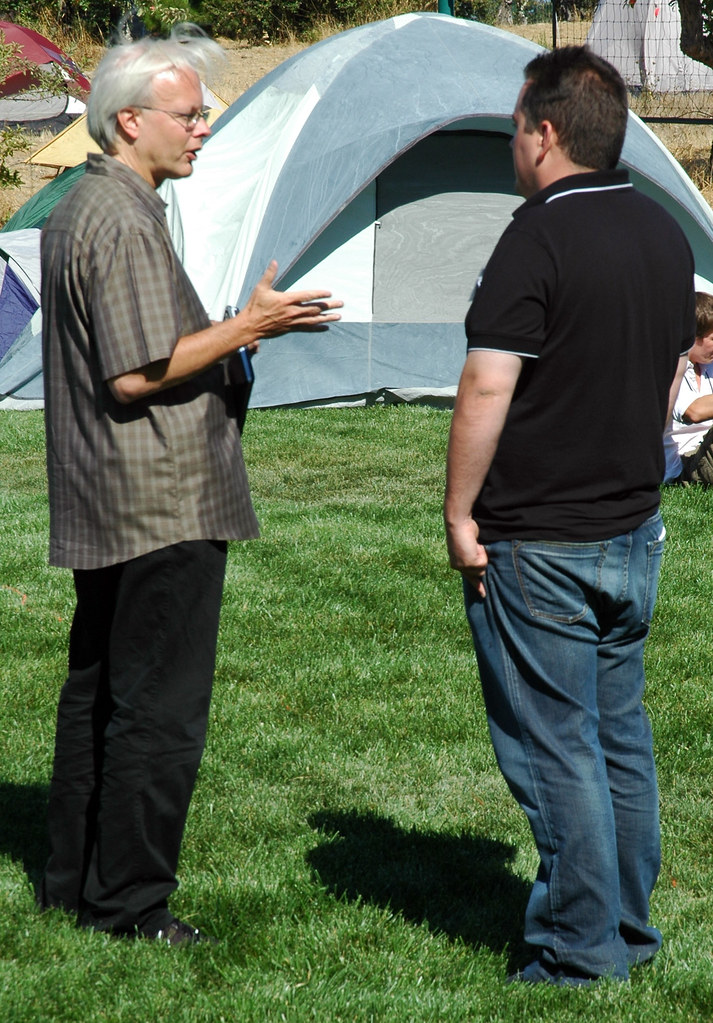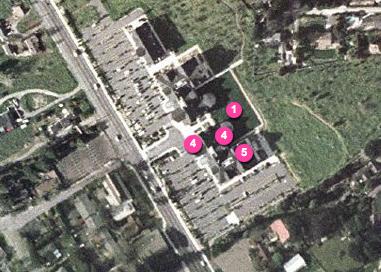I spent last weekend at Foo Camp hosted at O’Reilly’s headquarters in Sebastopol, about 60 miles north of San Francisco. The 200-person event was 3 days of non-stop conversations, sessions, and planning with the occasional break for food or a few hours sleep under a cubicle desk. I was blown away by the quality of conversations and intellectually challenging ideas and formulations each day. A few things stood out, and I’ll summarize a bit here before I forget
Friday, Day 1
On Friday evening I discussed oil futures and web-scale micropayments with economist Hal Varian. Hal wrote Information Rules, a book about how key economic drivers of world economies are shifting from plentiful industrial goods to highly competitive information goods such as software code and has published a few times about executives favoring buzzwords over sound economic policy. We had an econ geekout over wine talking about targeted payment buckets such as AdWords and how future commodity markets such as oil might be applied to information goods.
Managing an organization and motivating workers was a key theme on Friday night and throughout the conference. I had many discussions with attendees about topics such as selecting co-founders and employees in an early-stage startup, encouraging risk-taking and creative thinking at large companies, and knowing when to step back from a mistake. Company management versus peer and idea leadership was a reoccurring theme, and enthusiasm/passion combined with good leadership seemed to be essential qualities for a business at a macro or micro scale.
Saturday, Day 2
I spent a good chunk of time with Microsoft Chief Software Architect Ray Ozzie on Saturday afternoon discussing the current state of Microsoft and its approach to products and management. It was a high energy off-the-record conversation with interlaced swear words and general frankness on both sides. The conversation left me with a clearer picture of the challenges Microsoft faces over the coming years as it shifts its multiple business units and rearranges its management chains with new thinkers and thinking. I left the conversation with a good sense of finality regarding my decision to leave Microsoft: I now had as much information as possible from as high up the management chain as possible and knew I did the right thing by leaving.
Sam Ruby and I led a session on feed syndication best practices, giving implementors in the room tips and tricks while answering questions. Content of that 60-minute session may become a separate series of blog posts if I find the time and the motivation.
Joshua Schachter led a campfire discussion on Saturday night where technologists told real horror stories from their tech career. Participants shared their most frustrating moments with PHP and Perl, mistakes that brought down entire server farms, and bad business decisions. Later in the night the group roasted marshmallows and small discussions sprouted up such as which webmail server has the best fastest SMTP.
Sunday, Day 3
Jeff Jonas works for IBM and consults large government clients such as the NSA and CIA on discovering correlations and context in extremely large data sets (over 600 million rows at a time). His talk about sequence neutral processing and discovering the importance and integration of each new piece of data into your initial data sets. Few people in the world have Jeff’s type of real-world experience with huge data sets and time critical information discovery. We grabbed coffee on Saturday afternoon and talked about ways some of the ways new data collected in a personal search engine might be applied to a better understanding of the individual user and his intentions. His experiences changed the way I think of databases and query flow and may influence new ideas in search and data correlation coming out of IBM and other research centers.
Other small thoughts
I talked to Jeff Bezos about long bets he takes with APIs and projects such as Blue Origin. He seems to think of how the business should be, and march off into undiscovered territory confident in that vision. Building spaceships takes years, and not everybody understood the power of Amazon’s open APIs when they were first introduced.
Google contracted a plane to fly about 900 feet over the event on Saturday during lunch, snapping 2-inch resolution images for Google Maps and Google Earth that should be available in a few weeks. There are contractors with small planes all over the country that can be deployed for similar captures, giving us a glimpse into what near-time data collection might look like in the competitive online maps space.
I’m still recovering from a weekend of little sleeping and lots of mental stimulation. It was a unique experience and I am glad I was able to contribute in unique ways throughout the entire weekend. Just like the images taken from the Google plane I’ll need a little time to process it all and integrate some of the new data with my existing thoughts and understanding. I had a lot of fun and have lots of new knowledge to tackle new things that may emerge.




